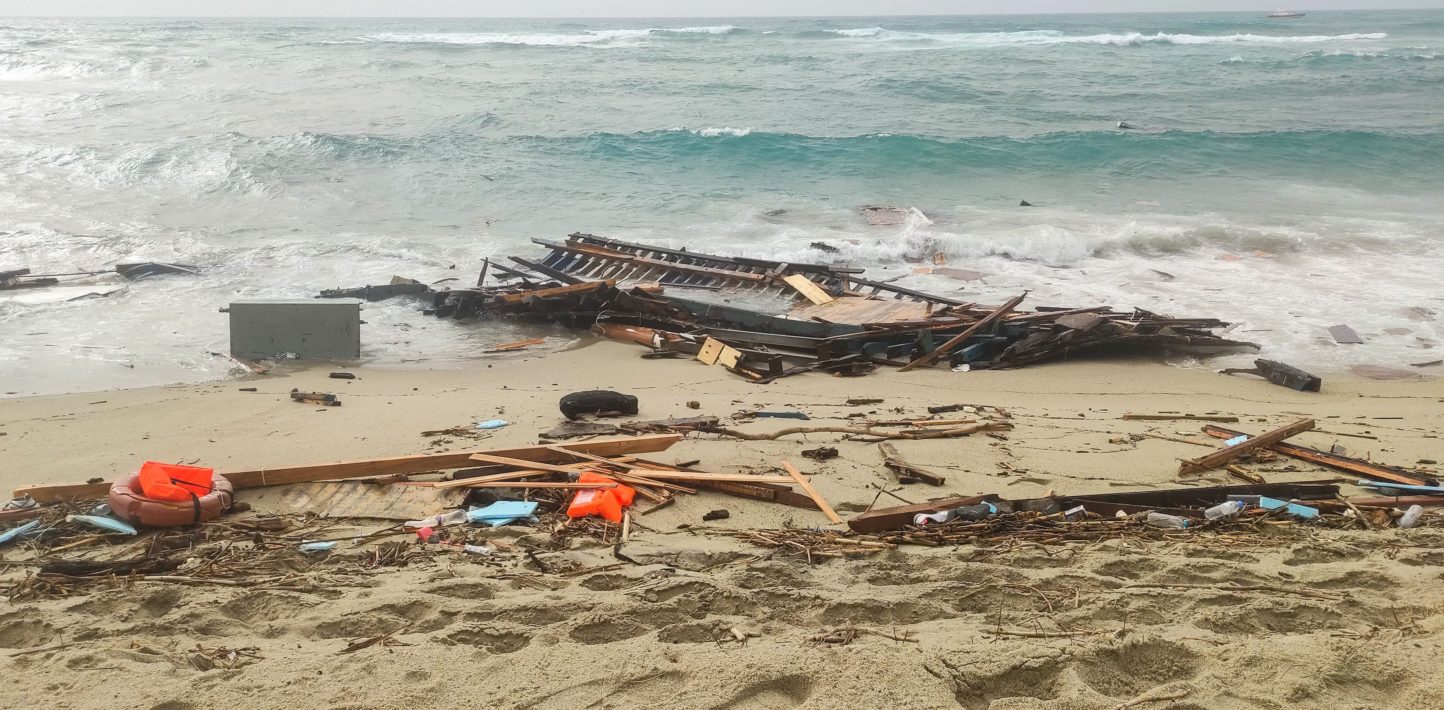In October 2023, Amnesty International submitted its contribution to a strategic inquiry launched by the European Ombudsman (Own Initiative Inquiry OI/3/2023/MHZ), focused on the role of Frontex, the European Border and Coast Guard Agency, in the context of search and rescue (SAR) operations. The inquiry centred, in particular, on the involvement of Frontex in the shipwreck off the coast of Pylos in June 2023.
Amnesty International has long followed the work of Frontex, acting as a member of Frontex’s Consultative Forum on Fundamental Rights from its inception in 2012 until it concluded its membership at the end of 2022. Since 2015, Amnesty International has raised concerns over elements of the Agency’s maritime operations in the Mediterranean and its involvement in SAR activities.
A first set of concerns relates to the Agency’s aerial surveillance activities in the central Mediterranean Sea, which involve cooperation with the Libyan Coast Guard to intercept and return refugees and other migrants back to Libya, where they are then exposed to prolonged arbitrary detention, torture and other ill-treatment, and a host of other serious violations. While the deployment of naval assets by the Agency has been minimal, and their direct involvement in actual rescues rare, since 2018 the Agency’s aircrafts have played a key role in identifying the position of boats in the central Mediterranean and its notification to Libyan authorities.
Second, Amnesty International has raised questions over the information available to Frontex and national authorities ahead of multiple cases of shipwrecks in the Mediterranean, and their ability to prevent these losses of life. Third, both Amnesty International and the Consultative Forum have also expressed repeated concerns over the Agency’s operations in countries adopting practices that are incompatible with European Union (EU) law on asylum and migration, urging it to take swift action in cases of reported or alleged fundamental rights violations.
Most recently, Amnesty International has investigated the shipwreck of the Adriana off the coast of Pylos, Greece, that took place on 13-14 June 2023 and caused the death of more than 600 people. Together with Human Rights Watch, the organisation visited Greece in July 2023 to interview survivors, UN and international agencies, nongovernmental organisations, and representatives of the Hellenic Coast Guard and police. It also had several communication exchanges with Frontex between June and September 2023, to determine the circumstances of the shipwreck and steps taken toward accountability.
Amnesty International considers that Frontex could have taken more steps to verify the state of the Adriana and ensure the proper conduct of SAR operations, including by taking earlier and more proactive steps to dispatch its assets to the migrant boat and issuing a Mayday call. Our concerns extend to Frontex’s assessment of situations of distress at sea, including in this case, and how this is reflected in its subsequent actions. We also draw attention to the discrepancies between Frontex’s actions in this case – such as its brief monitoring of the Adriana – and the recommendations issued by several institutions regarding Frontex assets in SAR events. Lastly, we highlight Greece’s request to dispatch the asset Frontex had offered for the Adriana to an incident south of Crete, in view of the previously recorded practice by Greek authorities of diverting Frontex assets from incidents that might raise fundamental rights concerns.
This contribution to the European Ombudsman’s inquiry discusses these elements in turn. It is informed by this experience and builds on several Amnesty International reports that included an analysis of specific Frontex operations and activities in the Mediterranean.
Formal letter exchanges between Amnesty International and Human Rights Watch, and the Executive Director of Frontex, Mr Hans Leijtens, between June and September 2023, are included in Annex 1 and Annex 2.


